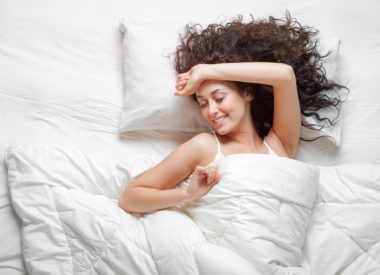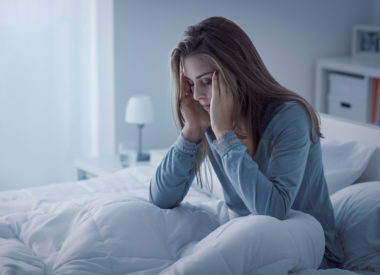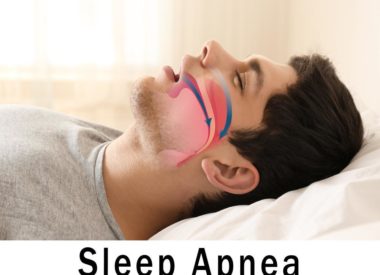How Blue Light Before Bedtime Disrupts Sleep
How Blue Light Before Bedtime Disrupts Sleep
If you typically spend time using electronic devices or watching television before bed, you may want to reconsider, especially if you have trouble sleeping.
Heres why: Electronics emit light that can keep you awake and contribute to sleep problems. Even some types of light bulbs can interfere with healthy sleep. By reducing your exposure to these types of light, you may get a better nights sleep and wake up feeling more refreshed in the morning.
Light sets your internal clock
Our eyes contain cells called photoreceptors, which sense light. When your eyes see light, they tell your brain that its daytime time to be awake and alert.
And when your eyes see less light, they tell your brain that its time to start getting ready to sleep. Dim light triggers the release of a hormone called melatonin, which induces sleep.
Computers, tablets, smartphones, and televisions can interfere with melatonin production, especially if you expose yourself to them during the two or three hours before bed. Usually, your brain starts releasing melatonin a few hours before you go to sleep. But light exposure before bed can slow down melatonin production.
Blue light equals alertness
Any kind of light can affect melatonin levels, but blue light seems to do so more than other types of light. Blue light has a shorter wavelength than other kinds of light, such as red or orange light, and has the greatest impact on melatonin production.
Electronic devices tend to emit significant amounts of blue light so do fluorescent lights and many types of energy-efficient light bulbs, such as LED lights.
During the day, blue light increases your attention and mood. But before bed, you want to feel less alert.
When you expose yourself to blue light before bed, your eyes tell your brain that its time to stay awake, rather than go to sleep. Over time, this can affect your circadian rhythm, which is the day-night cycle in your brain.
Effect on your health
Even if you fall asleep without problem after bedtime exposure to blue light, you may not be sleeping as deeply as you would have without blue light exposure. In other words, you may be sleeping, but you could be getting less REM sleep or dream sleep.
Chronic sleep deprivation doesn’t just make you feel less energetic. It can also increase your risk of a range of health problems, including Type 2 diabetes, cardiovascular disease, depression, and obesity.
How to turn down blue light
To prevent blue light from keeping you awake, avoid bright screens for two or three hours before bed. If you must read your tablet, work at your computer, or scan your smartphone, turn the brightness as dim as possible.
Or consider installing an app that converts much of the blue light on your device to red or orange light, which is less likely to interfere with healthy sleep.
You can also protect yourself from blue light by replacing LED light bulbs and fluorescent lights with bulbs that emit warmer-colored light, such as orange or red.
Get help if you cant sleep
At Sound Sleep Health, we can make it easier for you to get the rest you need. For diagnosis and treatment of insomnia and other sleep disorders, book a consultation by phone or online.
Exclusively treating patients with sleep issues, the practice is led by renowned board-certified sleep medicine specialist Dr. Gandis G. Maeika, who trained at Harvard and Duke universities and is a fellow of the American Academy of Sleep Medicine and an active member of the National Sleep Foundation.



